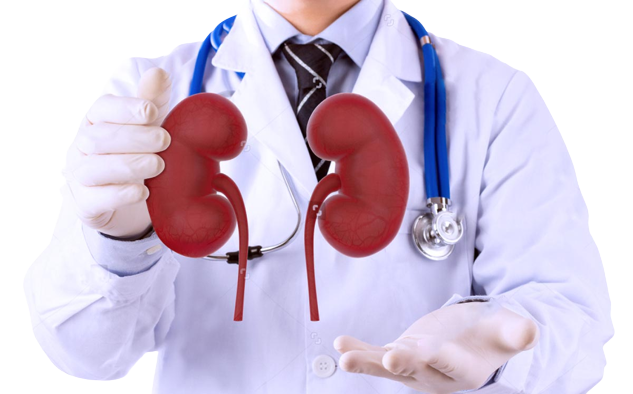Urology
Urology is a medical specialty that focuses on the diagnosis and treatment of conditions related to the urinary tract system and male reproductive system. Urologists are physicians who specialize in this field and are trained to manage both non-surgical and surgical conditions.
At our esteemed hospital, we take great pride in providing exceptional urology services that are focused on improving the lives of our patients. Urology is a specialized medical field that deals with the diagnosis and treatment of conditions affecting the urinary tract and male reproductive system. Our team of experienced urologists and dedicated healthcare professionals is committed to delivering comprehensive care and utilizing cutting-edge treatments to ensure optimal outcomes for every patient.
From routine check-ups to advanced surgical interventions, we offer a wide range of urological services tailored to meet the individual needs of our patients. Our multidisciplinary approach combines the expertise of urologists, nurses, and support staff to provide personalized care throughout the entire treatment journey.
Our urology department is equipped with state-of-the-art technology and advanced diagnostic tools, enabling accurate and timely diagnosis of urological conditions. Whether it’s urinary tract infections, kidney stones, prostate issues, bladder disorders, or male infertility, we have the capabilities to identify the underlying causes and develop customized treatment plans.
When it comes to treatment, we are at the forefront of innovation, utilizing the latest advancements in urological procedures. Our team is highly skilled in performing minimally invasive surgeries, robotic-assisted procedures, and other groundbreaking techniques that minimize discomfort, reduce recovery time, and enhance surgical precision. We understand the importance of patient comfort and strive to provide the least invasive and most effective treatment options available.
Beyond clinical excellence, we prioritize compassionate care and open communication. Our urologists take the time to listen to patients’ concerns, answer their questions, and involve them in decision-making processes. We believe in empowering our patients with the knowledge they need to make informed choices about their healthcare. Georgian Superspeciality Hospital.

Some key aspects and topics related to urology
Urinary Tract Anatomy: The urinary tract consists of the kidneys, ureters, bladder, and urethra. Urologists study the structure and function of these organs to diagnose and treat urinary system disorders.
Urinary Conditions: Urologists diagnose and treat various urinary conditions, including urinary tract infections (UTIs), kidney stones, urinary incontinence (loss of bladder control), urinary retention (inability to empty the bladder), and urinary tract obstructions.
Male Reproductive System: Urologists also specialize in the male reproductive system, including conditions such as erectile dysfunction, male infertility, prostate disorders (such as benign prostatic hyperplasia or prostate cancer), testicular conditions, and male sexual health issues.
Prostate Health: The prostate gland is a significant focus in urology. Urologists screen for prostate cancer through the use of prostate-specific antigen (PSA) testing and perform prostate biopsies. They also treat various prostate conditions, including prostatitis (inflammation of the prostate) and benign prostatic hyperplasia (enlarged prostate).
Urological Surgeries: Urologists are trained to perform surgical procedures when necessary. Some common urological surgeries include prostatectomy (removal of the prostate gland), nephrectomy (removal of a kidney), ureteroscopy (using a thin tube to examine and treat the ureter and kidneys), and lithotripsy (non-invasive treatment for kidney stones).
Pediatric Urology: Urologists may specialize in pediatric urology, focusing on the diagnosis and treatment of urological conditions in children. This includes conditions such as congenital abnormalities of the urinary tract, urinary tract infections, and bedwetting.
Oncology: Urologists work closely with oncologists in the diagnosis and treatment of urologic cancers, including prostate cancer, kidney cancer, bladder cancer, and testicular cancer.
Minimally Invasive Techniques: Urologists often utilize minimally invasive techniques, such as laparoscopy and robotic-assisted surgery, to perform surgical procedures with smaller incisions, reduced pain, and faster recovery times.
Continence and Pelvic Floor Disorders: Urologists also address issues related to urinary incontinence and pelvic floor disorders in both men and women. They provide treatments such as medication, behavioral therapies, and surgical interventions to improve bladder control. Georgian Superspeciality Hospital.
